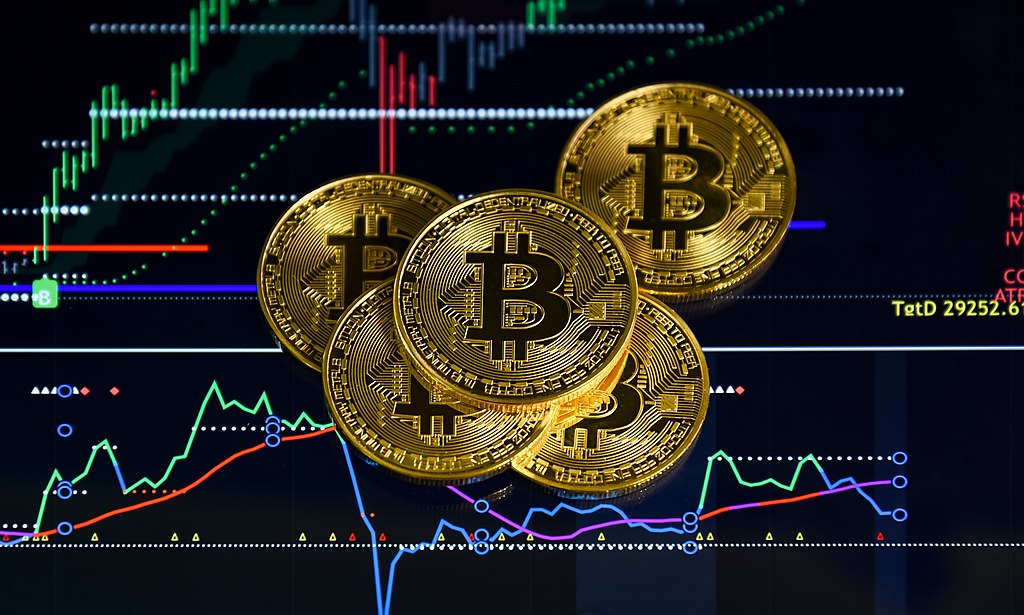Is blockchain investing in Paris real estate possible? Is it possible to use cryptocurrencies under current French law?
With some test cases recently reported, we examine what the future of blockchain investing could look like in our property market.
And the changes may be happening fast.
What is a blockchain?
Even if you’ve heard about blockchain and cryptocurrencies, you might not know the ways real estate investment can use them.
A relatively new method, blockchain is a system used for the exchange of assets using cryptocurrencies such as Bitcoin.
Think of it like a digital ledger that stores a continuous string of information. It can track assets and record all transactions in a long chain of unalterable information.
In this way, it's possible to digitize assets such as property to buy and sell – a process known as ‘tokenization.’
Building on this principle, blockchain technology could open up the opportunities to own and invest in property, by splitting and sharing out the ownership to multiple parties. So instead of owning an entire property, investors would own a fractional share of it in the form of a digital token.
Advocates of the technology claim it can also make transactions quicker and safer, something which increases its appeal to this group of fast-paced property investors.
Ultimately, blockchain has the potential to make investing in real estate more accessible for everyone.
Limitations under current French law
With its required use of notaries and mairies (town halls), the French system of buying and selling real estate does throw up some obstacles.
Different from other international property markets, French law could slow the introduction of blockchain investing in Paris real estate.
Technically, current laws prohibit the tokenization of a real estate asset in this way. And there are stringent checks that form part of every real estate transaction.
But test cases are already taking place to establish how blockchain investing could work in France.
Test cases in Boulogne-Billancourt and the 6th
Officially, no sale of Parisian property using blockchain has happened. Or has it?
Reports from 2019 suggest an experimental blockchain property sale took place, purchasing the ‘AnnA’ private mansion located in Boulogne-Billancourt. The Equisafe investment platform oversaw the €6.5 million transaction.
In a blockchain, Equisafe then divided the notarial deed into a hundred digitized tokens that are available to purchase.
A different project made the news earlier this year, in January. This one took the form of NFTs (non-fungible tokens).
A business property in the 6th arrondissement (district) of Paris was divided into 1,111 shares, each represented by a digital ‘card.’ Each card is worth a different amount of monetary investment named regular, rare, mythic, or unique.
By owning a card, investors can enjoy a potential source of income from a proportion of the rental fees, which are re-appraised each year.
It is early days for both these test transactions. However, blockchain investing is growing each year around the world, and France is not going to get left behind.
Blockchain real estate investing in other countries
Other countries seem to be a little further ahead, and blockchain transactions have taken place since at least 2017.
This includes the USA, Canada, and many European countries.
Some online investment companies already offer buyers the chance to buy into the US real estate market using fractional, tokenized ownership, all powered by blockchain.
In this model, ownership of properties gets spread across a limited number of tokens. Investors then have the potential to collect revenue from rental fees in proportion to their stake.
All real estate is overseen by a property management company that sources tenants, collects the rent, and even manages any property repairs or maintenance. The investors do not have involvement at the ground level.
Some systems suggest the possibility of a time share structure, through which owners have the right to use the property for a certain amount of time each year. Every sale and contract is different.
Will this new style of property investment become more accessible to the French real estate market? Time will tell.
Will blockchain investing in Paris real estate replace traditional methods?
Blockchain is still in its relative infancy, especially in France where government-level changes are probably required before it becomes fully accepted.
So it’s clear – the traditional currencies and methods of buying and selling real estate aren’t going anywhere just yet.
But it’s undeniable that blockchain investing is set to grow and become more commonplace.
We will report on this evolving subject when there are further developments.
More updates from 56Paris
Whether you are interested in buying a Paris property with traditional means, or perhaps even the new technologies, the 56Paris team are here to help, so don’t hesitate to get in touch.
You can also follow our social media channels Facebook, Twitter, Instagram, and Pinterest for even more news and updates.
